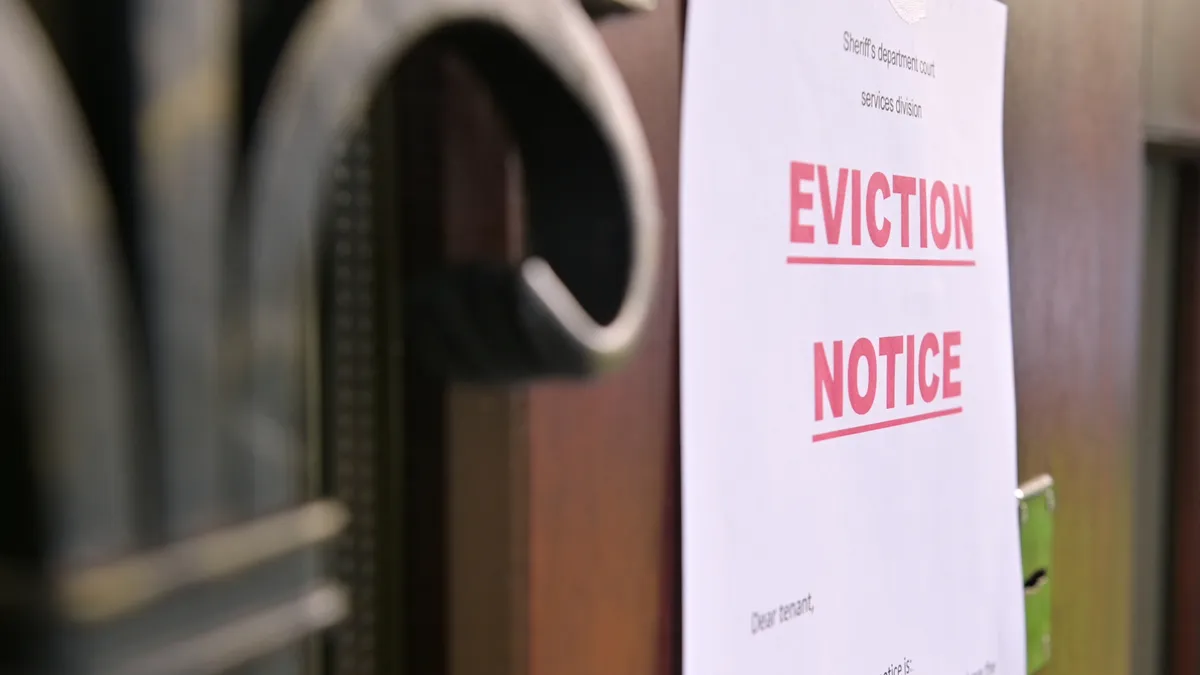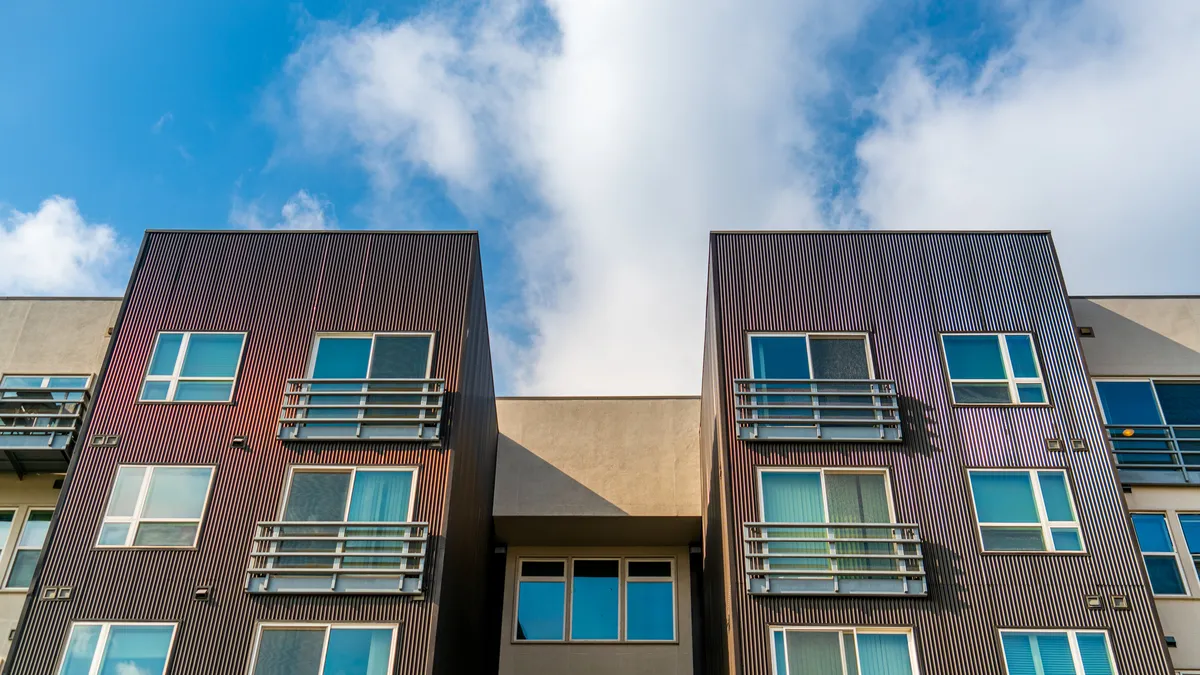Dive Brief:
- Fifteen percent of renters — or 8.4 million Americans — were not current on their rent payments, according to the latest Household Pulse Survey from the Census Department.
- For lower-income renters, the picture is bleaker: Roughly 20% of Americans making $34,999 or less per year reported they weren’t caught up on payments. However, higher up on the income scale, renters were less likely to be behind, according to the survey, which covered June 1 to June 13.
- In response to a separate question on the survey, 1.2 million renters, 13.7% of respondents, said they were very likely to have to leave their homes in the next two months due to eviction. Another 2.3 million, or 27.8%, said they were somewhat likely to have to leave their home in the next two months due to eviction.
Dive Insight:
Renters at the lower end of the income scale continue to face increasing financial stress as prices for food, gas and rents increase.
John Kennedy, executive vice president of Chicago-based Evergreen Real Estate Group, which manages more than 10,000 units in 10 states, says some residents in his largely affordable portfolio are facing economic difficulties.
“This high inflation area that we’re in is certainly creating challenges for those [low-income] households,” Kennedy told Multifamily Dive. “These are people who are already low- and very low-income folks. We see these types of inflationary pressures impacting their day-to-day living expenses.”
In workforce housing, where renters don’t receive a subsidy, inflationary pressures aren’t causing problems yet, according to Kellie J. Falk, managing director for Drucker + Falk, a family-owned apartment operator based in Newport News, Virginia.
“We haven't gotten pushback yet, but I anticipate it probably happening,” Falk said.
RealPage released statistics in late June that back up Falk’s point. In market-rate apartments. tenants paid 95.6% of rent due in May 2022, up 0.2 percentage points year-over-year.
Fewer issues among high-income renters
At the higher end of the market, renters aren’t facing the same financial stress, according to Ric Campo, chairman and CEO of Houston-based REIT Camden Property Trust. Camden’s residents have an average income of around $110,000. In the $100,000 to $149,999 income range, only about 3.5% of renters are not caught up on their rent payments, according to the Census Department.
“When we do surveys of people who live in Camden apartments, they’re all employed and they’re all getting raises,” Campo told Multifamily Dive. “Rents are going up but they all have the ability to pay. It would be different if our residents were stressed financially. But they’re not.”
While these residents are paying more for things like food and gas, they’re can afford those increases, according to Campo.
“Inflation is probably taking a bite out of our residents’ pocketbooks,” Campo said. “But it’s not going to push people to double up or to do something different than they’re doing now.”
RealPage’s numbers back this up. From January 2020 to May 2022, renter household incomes jumped 21.4%, compared to a 21.7% increase in asking rents.
But if employers start cutting back, then apartment owners could see more widespread issues.
“I think the bigger question is just the overall economy,” Campo said. “If you have a situation where the Amazons and the Googles and other employers are not hiring people now and laying people off, you start getting into the destruction of demand. It’s not so much that initial inflation but the medicine for fixing inflation that tanks the market.”
Click here to sign up to receive multifamily and apartment news like this article in your inbox every weekday.











